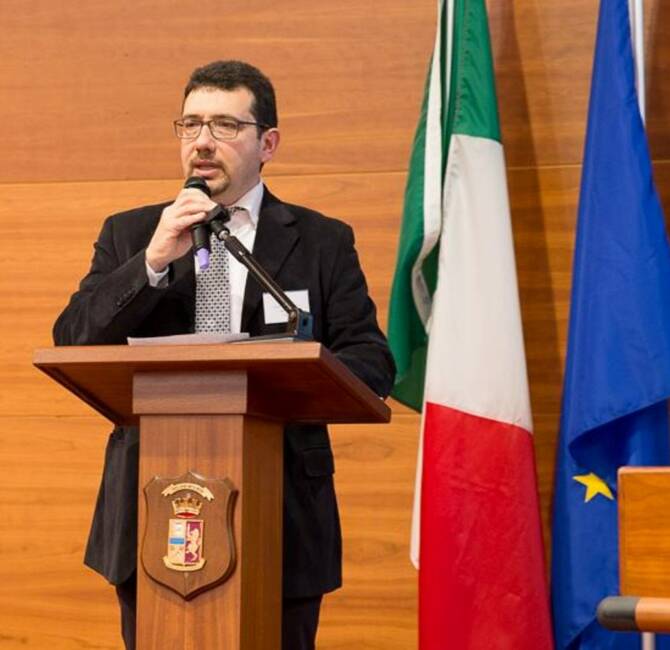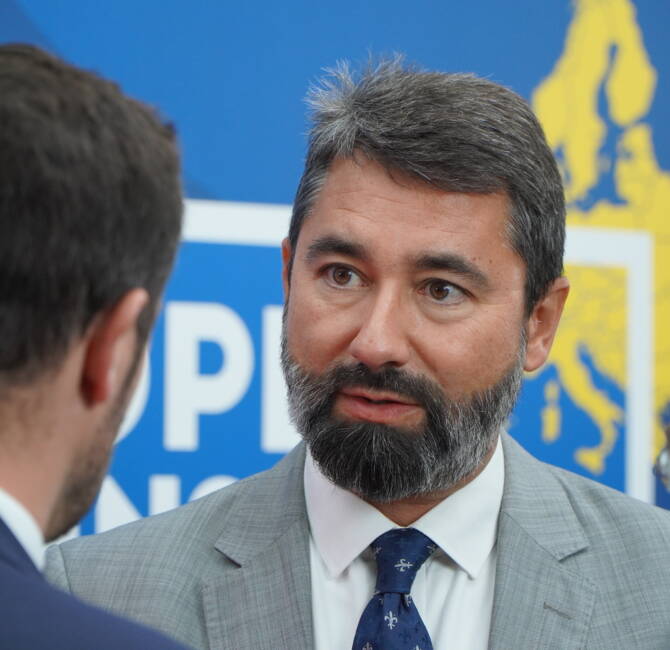This article was published online by the Magyar Nemzet on 17 February 2022.
After Magyar Nemzet published a series of articles on the materials (mostly consisting of Skype interviews) anonymously sent to our office, Tamás Deutsch turned to the Members of the European Parliament in writing. According to the Fidesz politician, the operations of American financial speculator George Soros’ network have been definitively revealed. Deutsch called upon his colleagues to finally address the issue of external, Soros-network manipulation in EU institutions.
Tamás Deutsch wrote in his open letter to the MEPs that those who believed the Soros-network claims were some kind of conspiracy theory, now have SorosLeaks, the undeniable proof disseminated in the press. He also pointed out:
On the recordings, managers, researchers, journalists and politicians belonging to Soros’ circle of NGOs recount with uncanny honesty the double standard, fake news,
and manipulation employed by the network against the Hungary and Poland for their patriotic views.
According to the Fidesz MEP, the phenomenon unveiled is in fact a problem that involves all of Europe. Deutsch believes the manipulative system has not only assumed dominance in the Western mainstream media, but also in the activities and decisions of the European Union which is increasingly being run by the American speculator’s network.
He also said the recordings fundamentally question the belief in an objective and independent media; they put a completely new perspective on the issue of manipulation in Europe and the European Union. Tamás Deutsch stated that the Soros network threatens the integrity of EU institutions.
“The time has come to finally address this issue, the issue of the Soros network’s external influence on EU institutions,” Tamás Deutsch announced to his fellow MEPs. He considers it unacceptable for any network financed by a certain interest group to manipulate European media, the work of EU institutions, or the external perception of Member States. He attached the english translations of the SorosLeaks series to the letter sent to MEPs.
Soros network blew its own cover
The SorosLeaks series of articles cited by the politician consists of a set of documents with hours of Skype interviews included, sent from an unknown email address to the Magyar Nemzet editorial office. Former employees of the American speculator’s Open Society Foundations (OSF) and closely connected journalists explained in their own words their influence on the media and the distorted, false image of Hungary and Poland in the international press.
In the articles, we introduced Andrej Nosko, former head of the Soros foundation, in clips of his interviews. We quoted Dalibor Rohac, Slovakian-descended researcher, employee of the American Enterprise Institute and project manager at the Hungarian Civil Liberties Union. We also cited Márton Asbóth and former 24.hu journalist Mátyás Kálmán.
Andrej Nosko plainly said in his Skype interview that,
There is an unfounded, biased campaign against Hungary and Poland, and uninformed, foreign journalists influenced by NGOs are painting a distorted picture of Hungary.
According to him, the fact that fewer foreign correspondents from the mainstream media cover multiple countries leads to intellectual laziness. “As a result, it is very easy to criticize Poland and Hungary without citing actual arguments; in other words, these reports are biased,” said the Soros foundation’s former director. He said it is also a problem that most journalists cannot speak Hungarian and thus not only cannot communicate with the average citizen, but also cannot read local news. They must rely on second-hand sources and the political positions they are aligned with. In this way, the foreign reporting on the Hungarian government is inherently biased.
Irritating double standard
“These secondary sources depict a rather distorted image, among others, of the legitimacy of the Hungarian government,” said Nosko. According to him, this is why it is rarely mentioned that the Hungarian government enjoys an enormous amount of support. Nosko spoke of the well-known Freedom House NGO as well: “When reading like ‘nations in transit’ of Freedom House, their work for the Slovak chapter, and sometimes it’s so irritating to see that instead of the analysis you have essentially agitprop, you know. Essentially, whenever it’s your friends who are in the government, then the country is doing well. If it’s not your friends in the government, then whatever they do is just not good enough.”
Nosko stated that if the Hungarian Prime Minister were a socialist, the media and EU would have a much different attitude,
He cited the former Slovakian PM Robert Fico as an example of what was tolerated on the opposing end of the political spectrum. Dalibor Rohac, of Slovakian descent, also cited Robert Fico in his Skype interview. Rohac researched Central and Eastern European and EU processes while working at the American Enterprise Institute. He explained that the government led by Fico which was nominally social democrat was rather corrupt, but Fico was regarded as one of their own given that he belonged to the group of European socialists. This is why Fico never had to encounter the same degree of pushback from Brussels as Viktor Orbán. Rohac believes
if Orbán were voted out, and the Hungarian socialists came back, there would be a massive sigh of relief in Brussels.
Soros’ people also talked about the international left and its affiliated press applying double standards to countries in Central and Eastern Europe, depending on the party of the government. They acknowledged that
There is no sign of dictatorship in Hungary and while NGOs are continuously cowering from the regime in public, the reality is, they have no problems operating in Hungary.
It is especially good to live in Hungary
Márton Asbóth, project manager at the George-Soros-supported Hungarian Civil Liberties Union (HCLU), said in his Skype interview that
NGOs can maintain their operations in Hungary in perfect safety.
That is why, he believes, the HCLU never even bothered to work out a Plan B in if the government were to shut down these organizations. Asbóth also said that while according to foreign media reports there are authoritarian regimes in power in Hungary and Poland, in his view both countries are great places to live.
Kristóf Zoltán Varga, former director at the Open Society Foundation in Budapest, also confirmed that NGOs can operate safely in Hungary, and reassured his interviewer that funds coming from abroad, too, safely reach these organizations.
Bribed journalists
In another Skype interview, Mátyás Kálmán, previously a journalist for both 24.hu and Index (opposition media forums) also spoke of the bias, saying that:
various NGOs manipulate or even bribe journalists reporting about Hungary, and so they tend to misrepresent events taking place in the country.
“You don’t know whether a given journalist received an invitation to a fine hotel, and how much he or she was offered to write the story that they want to hear told in the media,” said Kálmán, explaining their influential role. As an example, mentioning Amnesty International, an organization financed by George Soros, as one of the NGOs that seeks to control journalists.




